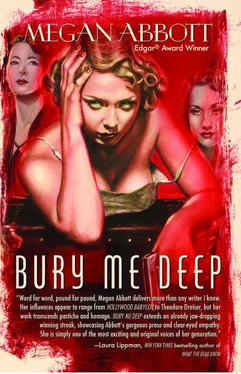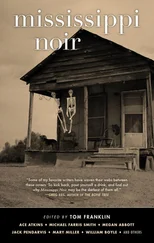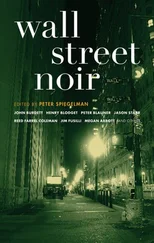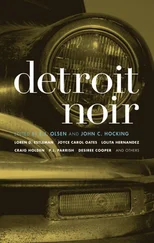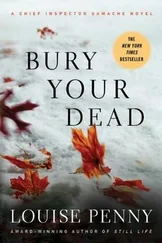“You know your share in so many of these sins of our Mr. Lanigan,” she said, eyes fixed on him. “And I know them too, Mr. Worth—or is it Mr. Tanner?”
He looked at her. She made him feel it, feel her knowing. My, but she was changed. She felt Louise calling out from her own booming throat. There was a kind of glory in it.
“Mrs. Seeley,” he warned, “these things are known. They are known and abided by. Encouraged. We are a small town, in many ways.”
“Was it not you in the Courier, Mr. Worth?” she said, voice rising. “You have friends. You certainly shouted lies to the rafters when last they came calling. Was that not you, speaking of my terrible temper, of the girls’ wild ways? Those girls you took to pieces?”
His face collapsed before her. She felt an ache in her chest watching it, but she went on.
“You must make your reporter believe you. You must make them all believe it,” she said, voice firm, focused. “Make them see Mr. Lanigan’s day is past. Make them see the profit in it, if you must. Use whatever secrets you hold to make them see.”
There was a long pause, a hundred years or more, but then his chin began to shake up and down. Something was happening. His eyes sharpened.
“Can I, Mrs. Seeley?” he asked, voice speeding up. “I see. I do see. For that night, he may have us both to the wall. But not on this. And I can move things, Marion. I know it. I know this town just as he does, after all. I have seen all manner of things. Oh, if you knew—I have done all kinds of favors. I have worn the blinders time and again.” He peered at her. “Marion, do you fathom it: I have secrets even darker than this.”
She looked at him and knew it to be true.
“Can you shine the light on him, Mr. Worth? Can you take these scraps and spin silk for us?” and she felt her voice begin to break. It was all so much. “Can you do it, Mr. Worth?”
His eyes were strangely brightening. Something was lifting. His visage seemed to take new shape, those fallen features resolving themselves once more.
“I can,” he said, voice rumbling, near-oratorical. “Believe me, Mrs. Seeley. Do. It will redeem me.”
“It will,” she said, and she knew she had given him a great gift and she felt larger. She suddenly felt like Louise’s noble emissary from beyond the grave. And wasn’t she?
She knew exactly what she was to do. She had set things in motion and now, now—she had given him his weapon and he hers. Abandoning the suitcase, even the purse, at the meat market, she carried only the pistol in the smocked pocket of her dress.
SIX BLOCKS AWAY, at the soda fountain, she made a quick telephone call. It was just as she guessed. He was not at home. But that was fine. It was as it should be.
Walking up Lynbrook Street, watching the three-story manse heave into sight, she felt composed, focused. But when she arrived on the doorstep and rang the bell, her breath began to catch, her chest hammering so loudly she almost did not hear the voice on the other side of the door.
“Who is it?” the whisper came, and it was Elsie Nettle’s sibilant shush.
The voice so delicate, a sparrow wing rustling, Marion felt her back straighten, her head rise. She felt her blood come back, surging through her. She would do this.
“Open the door, Elsie,” she said, her voice like smooth iron.
“I told you on the telephone…Mrs. Seeley,” the voice came back. “I told you he is not here.”
“I’ve come for you, Elsie Nettle,” Marion said. “And you’d best open this door.”
And she did.
It took fifteen minutes, no more. They sat quietly in the front parlor, the air heavy with motes and the tang of sulphur and tar oil. She saw the trembling in Elsie’s doe eyes and knew it would not take long. In quiet tones, but with a firmness she had mastered as if overnight, Marion told Elsie that everything would change tomorrow, that the magnificent house of cards Mr. Joseph Lanigan had erected with his sweet scented hands was about to fall, one flick from her dainty fingers, plus one butcher’s thumb, and gone, gone, gone. “You know what goes on. You tend to her. You fill her full of all those potions. If you stay, you will be lost,” she warned. “You’re not lost yet, or I would not have your ears now. If you stay, you will fall with him.”
At first, Elsie said nothing, could scarcely raise her delicate doll head. Finally, she murmured, in the quietest of voices, “But, Marion, it was you. You delivered me to him.”
“I know it,” Marion said. “I put you here. I set you out for him. I did everything but lift your schoolgirl skirt for him. And now I’m taking you away. I would not leave you here, Elsie. For all the world.”
And Elsie, still that mountain girl from Fool Hollow, not so broken yet, relented, even reaching out for Marion’s cold hand.
They climbed the stairs to the third floor, past the gust of slow decay radiating from the sickroom in the center of the house. And Marion watched as Elsie packed her small bag with her two uniforms, two day dresses, her undergarments, everything so shabby, save a new lilac hat for Sunday Mass.
Elsie, at Marion’s direction, telephoned the clinic to request a doctor to visit Mrs. Lanigan that evening, as she had quit her post and would be leaving town immediately.
Then, they walked out of the house together and Marion escorted Elsie, hand in hand, to the corner. When the bell clanged and the streetcar to the train station shuttered to a halt, she put Elsie on it, and watched her leave, the ribbon on her Easter hat fluttering behind her.
THERE WAS ONLY one step left to take. Now he would hear her, the man himself. With the pistol in hand, she would have him listen, and then she would be done. My, who would’ve reckoned her power, she asked herself. Not she, but there it was and she held it close.
She began walking again, in her head a million speeches unfurling, each larger and more damning than the last.
She walked to the lodge, which was dark, and to the Dunlop and the Dempsey and to the big new restaurant on Monroe and finally to the El Royale Hotel, which sparkled dustily in the foreground, reminding her of a long-ago night when a girl like her walked to that same hotel.
…walking alone into the cavernous Thunderbird Dining Room, a sea of dark suits and mustaches, and “Joe Irish is looking for you, bunny rabbit,” and she was fast in the arms of Gent Joe himself, tuxedo black as India ink, and she looked up at his eyes, his eyes smiling, his face doing smiling things as if there were never any such thing as shame in this world…
Walking, hearing her own feet clitter lightly on pavement in the dark of the city weeknight past ten, and everything was beginning to tilt, and inside the thought of seeing Joe Lanigan, it was doing things to her, doing rough bewitchments, and she could not sort it all out and she began to wonder if she would be able to say her piece. The words will come when I see him, she told herself. I will not be able to stop them.
“I’M LOOKING FOR MR. LANIGAN,” she told the bellhop sneaking a cigarette by the bank of rear doors.
The boy grinned and jerked his head toward the banquet hall, its gold-curtained entrance sprawling across the rear of the lobby.
“Thank you,” she said, and she walked through those curtains, feeling their velvet tendrils. And she kept walking, through the raucous spasms of the cavernous hall, the dark flocks of red-faced men huzzahing the floor show, through the glittered, confettied folly of it all, kept walking until she found him in the farthest corner, snug behind the massive, gold-painted bandstand. As if on cue, a chorus girl in his lap.
Читать дальше
